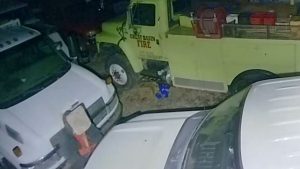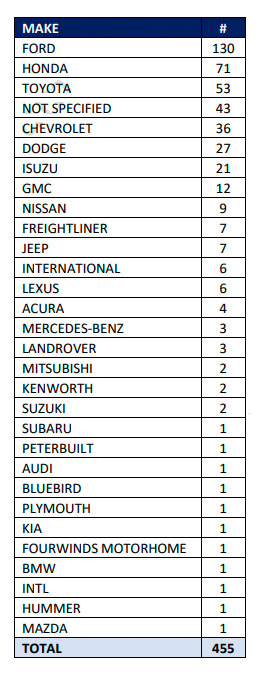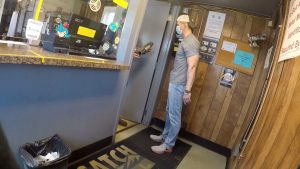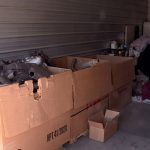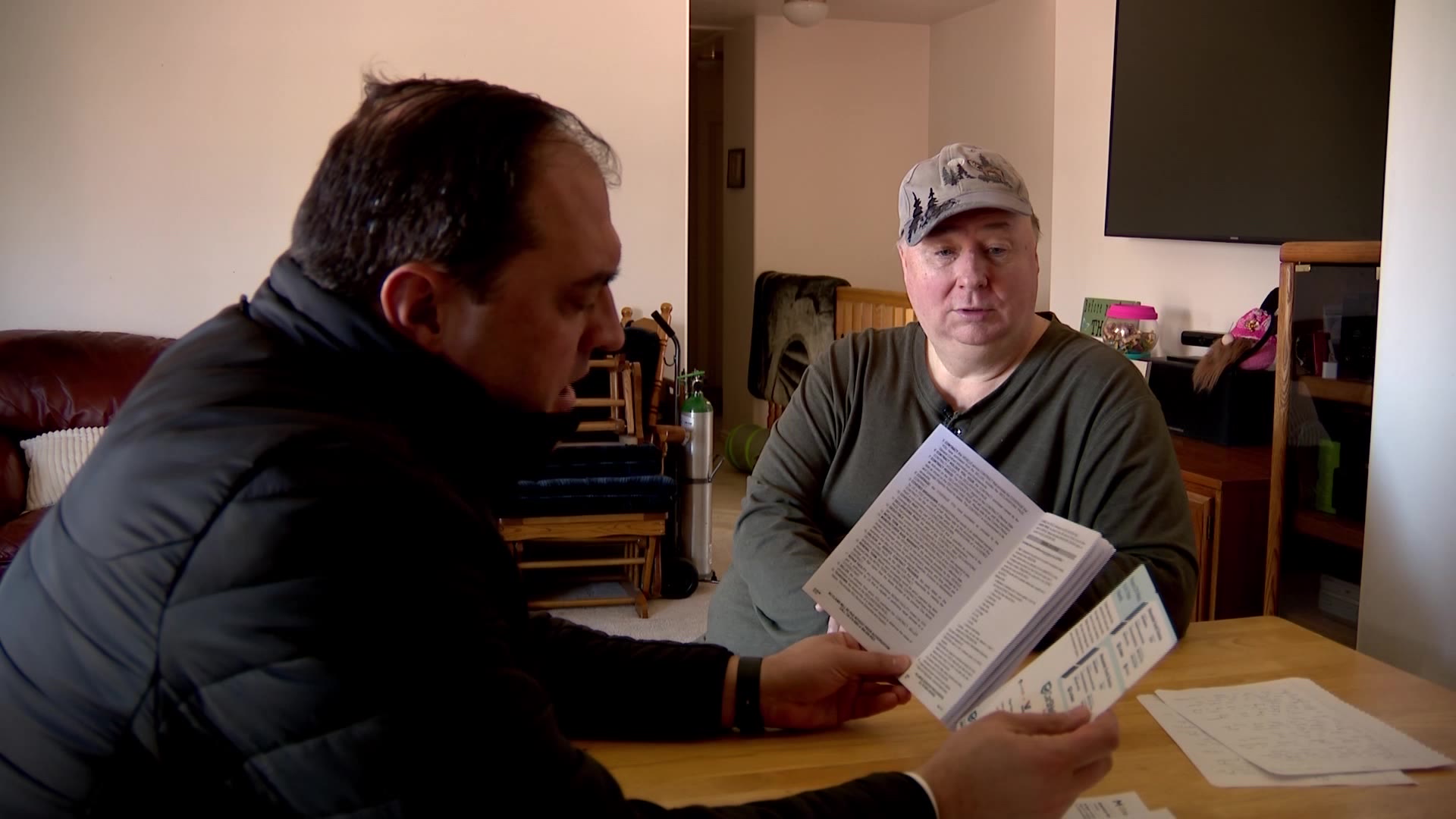KSL Investigators Goes Undercover To Check Compliance As Catalytic Converter Thefts Skyrocket
May 18, 2021, 3:51 PM | Updated: Jun 19, 2022, 9:57 pm
SALT LAKE CITY, Utah – If you own a vehicle, you are at risk of one of the fastest-growing crimes in Utah. Catalytic converters are being swiped from the underbelly of cars and trucks at an alarming rate.
Since 2018, catalytic converter thefts have spiked 600% in Utah, according to the attorney general’s office. Nationwide, the numbers are even more dramatic: a jump of 6,000% during the same time period.
The crooks sell them to scrap yards for hundreds of dollars, leaving you with repairs costing thousands.
The Crime
Unified Police tried to find one of those crooks a little after 8:00 p.m. in Millcreek, the night of March 25, 2021.
They searched alleyways, parking lots, and backyard fences, trying to find a guy who just moments earlier was caught on security camera.
The video showed what appeared to be a man with a shovel covering his face, breaking into Impact Auto and Diesel.
The business has cars and trucks, both on the lot and inside the repair shop.
Unified Police found a backpack with tools, and a catalytic converter gone.
So was the suspect.
Jeff Smith is the owner of Impact Auto and Diesel, and his story is not unique.
“This one will cost $1,000 to fix,” said Smith. “They bring a jack and they jack up the car. They take the saws and chop off the exhaust.”
Police say it takes less than two minutes to saw one off a vehicle.
The Value
If you don’t know much about cars, a catalytic converter is a device attached to the exhaust, reducing toxic gases and pollutants into less toxic pollutants by catalyzing a redox reaction.
That’s the science.
It requires precious metals for that science to work, precious metals worth a lot of money.
The filtering screens on catalytic converters contain trace amounts of platinum, palladium, and rhodium.
A standard catalytic converter contains between three and seven grams of those precious metals. A look at the market value shows that’s worth some serious coin:
- Platinum = $39.13/gram
- Palladium = $95.74/gram
- Rhodium = $900.22/gram
“Let’s face it, that’s what drives these types of thefts, right?” said Sgt. Keith Horrocks with the Salt Lake City police department.
He says the crime data certainly tells the story. Catalytic converter thefts in Salt Lake City jumped from 71 (April 2019-April 2020) to 331 (April 2020-April 2021) in a single year. That’s a 366% increase in just one city.
Catching these thieves has been tough.
“Their chances of getting caught are very low,” admitted Horrocks.
The Victims
The financial blow may be even tougher for the victims.
“Four to five thousand dollars,” said Kelly Edwards, “That’s what we’ve had to put out on replacing catalytic converters.”
Edwards runs a business with three tow yards and three auto repair shops. In other words, he has a lot of vehicles on his properties. In the last three months, Edwards said he’s had catalytic converters swiped from every single property.
“In the last few months, I would say 100,” he said.
He’s losing a lot of money, forced to replace catalytic converters stolen from customers’ cars, while on his lots.
“We have to put the catalytic converter back in it,” said Edwards, “and sometimes it’s $800 for a catalytic converter.”
Eight hundred dollars is on the low end. Replacing a catalytic converter can cost upwards of $2,400, depending on the vehicle’s make and model. The bigger the engine, the more expensive the cat.
And while you’re spending hundreds, even thousands in repairs, the thieves are selling your property to metal recycling yards.
Undercover
The KSL Investigators went undercover, taking catalytic converters to three different metal recycling yards in the Salt Lake Valley. KSL found none were in strict compliance with state law.
Recyclers are required to document the catalytic converters and identify the sellers.
All three businesses asked us where we got the catalytic converter.
All three businesses asked for personal identification.
Out of the nine requirements mandated by Utah law, there were at least two that each of these three businesses ignored: none documented our license plate, and none got our signature stating we had the legal right to sell the catalytic converters.
In fact, before leaving one of the facilities, we asked if they needed any more information from us. Instead, the employee offered up a suggestion.
“Stock factory, they’re worth big dollars right now,” said the employee.
When asked how much, the employee responded, “Depends on what it is. Subarus, $1,100.”
That’s $1,100 for the recycler, $250 for the seller. And there’s no iron-clad way to know if the catalytic converter is stolen.
No ID
Nate Mutter, with the Utah Attorney General’s Office, said serial numbers are etched into the side of some of these catalytic converters, but while the numbers may point to a model, they are not unique to a specific car, so there is no way to pinpoint exactly what car the catalytic converter came off of.
“All it will tell you is a potential year and model of the vehicle it’s on,” said Mutter.
For example, the serial number may reveal the catalytic converter is from a Ford Explorer between the years 2005-2010.
Mutter believes the laws need to be more strict, with more responsibility placed on the recyclers, some of whom are cashing in the most.
“It’s extremely frustrating!” said Mutter, “Someone can bring in a catalytic converter and it could be melted down later on in that same day.”
Which means without a solid paper trail, the only way to catch these thieves is somewhere in the act.
The Sting
Which is exactly what a task force led by the attorney general’s office and State Bureau of Investigations is trying to do.
On May 6, KSL Investigators went along as that task force sniffed out a storage unit full of catalytic converters.
“We’re probably looking at over $100,000 easy of catalytic converters that we seized today,” said Mutter. “I think it’s a big score, but I also think it’s a drop in the bucket.”
Dzenef Beganovic, 24, was arrested for investigation of engaging in a pattern of unlawful activity and theft by receiving stolen property.
The reality is, he is just one of many police have been trying to chase down for a two-minute crime, where crooks and some recyclers keep making money and victims keep losing money.
Even when police are called to Millcreek, searching Jeff Smith’s auto repair shop in the middle of the night, it seems they are barely making a dent in the crime.
Unified Police eventually caught the thief stealing from Smith’s shop. Smith and other victims believe more needs to be done.
One More Thing
A couple of weeks ago, the attorney general’s office audited more than a dozen scrap metal dealers in Utah.
A majority of the businesses received citations for non-compliance with state law, a class C misdemeanor. A first-time violation can result in a $750 fine, while a second violation is a $2,500 fine.
Law enforcement would like to see laws similar to those for pawn shops, where the scrap yards would be required to hold on to the catalytic converter for two weeks before melting it down, giving them more time to investigate reported thefts.


